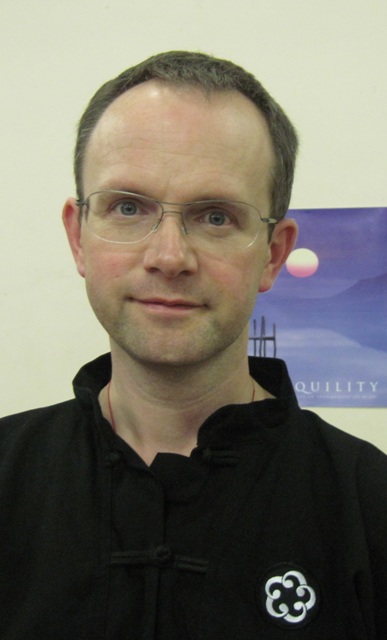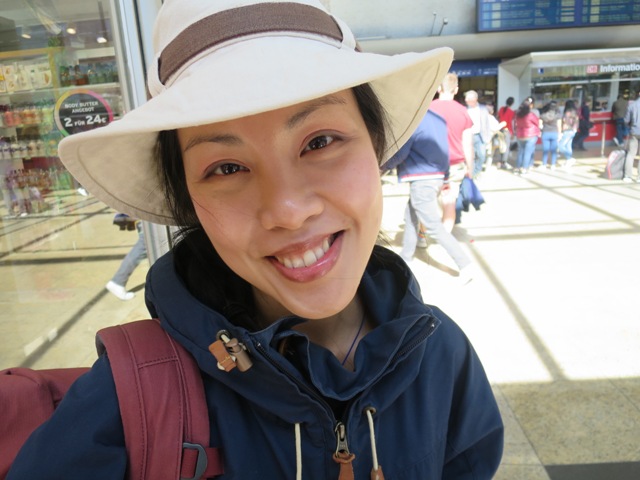THE SUN HAD set behind the mountains, and the roseate glow was still on the rocky range to the east. The path led down, wandering in and out through the green valley. It was a calm evening, and there was a slight breeze among the leaves. The evening star was just visible high over the horizon, and presently it would be quite dark, for there was no moon. The trees, which had been open and welcoming, were withdrawing into themselves from the dark night. It was cool and silent among these hills and now the sky was full of stars and the mountains were clear and sharp against them. That smell peculiar to the night was filling the air, and far away a dog was barking It was a very still night, and this stillness seemed to penetrate into the rocks, the trees, into all the things about one, and the footsteps on the rough path did not disturb it.
The mind too was utterly still. After all, meditation is not a means to produce a result, to bring about a state which has been or which might be. If meditation is with intention, the desired result may be achieved, but then it is not meditation, it is only the fulfilment of desire. Desire is never satisfied, there is no end to desire. The understanding of desire, without trying to put a stop to it, or sustain it, is the beginning and the end of medita- tion. But there is something beyond this. It is strange how the meditator persists; he seeks to continue, he becomes the observer, the experiencer, a recollecting mechanism, the one who evaluates, accumulates, rejects. When meditation is of the meditator, it only strengthens the meditator, the experiencer. The stillness of the mind is the absence of the experiencer, of the observer who is aware that he is still. When the mind is still, there is the awakened state. You can be intently awake to many things, you can probe, seek, inquire, but these are the activities of desire, of will, of recognition and gain. That which is ever awake is neither desire nor the product of desire. Desire breeds the conflict of duality, and conflict is darkness.
Well connected and rich, she was now on the hunt for the spiritual. She had sought out the Catholic masters and the Hindu teachers, had studied with the Sufis and dabbled in Buddhism.
“Of course,” she added, “I have also looked into the occult, and now I have come to learn from you.”
Does wisdom lie in the accumulation of much knowledge? If one may ask, what is it that you are seeking?
“I have gone after different things at different periods of my life and what I have sought I have generally found. I have gathered much experience, and have had a rich and varied life. I read a great deal on a variety of subjects, and have been to one of the eminent analysts, but I am still seeking.”
Why are you doing all this? Why this search, whether superficial or deep?
“What a strange question to ask! If one did not seek, one would vegetate; if one did not constantly learn, life would have no meaning, one might just as well die.”
Again, what are you learning? In reading what others have said about the structure and behaviour of human beings, in analysing social and cultural differences, in studying any of the various sciences or schools of philosophy, what is it that you are gathering?
“I feel that if only one had enough knowledge it would save one from strife and misery, so I gather it where I can. Knowledge is essential to understanding.”
Does understanding come through knowledge? Or does knowledge prevent creative understanding? We seem to think that by accumulating facts and information, by having encyclopedic knowledge, we shall be set free from our bondages. This is simply not so. Antagonism, hatred and war have not been stopped, though we all know how destructive and wasteful they are. Knowledge is not necessarily preventive of these things; on the contrary, it may stimulate and encourage them. So is it not important to find out why we are gathering knowledge?
“I have talked to many educators who think that if knowledge can be spread sufficiently widely it will dissipate man’s hatred for man and prevent the complete destruction of the world. I think this is what most serious educators are concerned with.”
Though we now have so much knowledge in so many fields,it has not stopped man’s brutality to man even among those of the same group, nation, or religion. Perhaps knowledge is blinding us to some other factor that is the real solution to all this chaos and misery.
“What is that?”
In what spirit are you asking that question? A verbal answer could be given, but it would only be adding more words to an already overburdened mind. For most people, knowledge is the accumulation of words or the strengthening of their prejudices and beliefs. Words, thoughts, are the framework in which the self concept exists. This concept contracts or expands through experience and knowledge, but the hard core of the self remains, and mere knowledge or learning can never dissolve it. Revolution is the voluntary dissolution of this core, of this concept, whereas action born of self-perpetuating knowledge can only lead to greater misery and destruction.
“You suggested that there might be a different factor which is the true solution to all our miseries, and I am asking in all seriousness what that factor is. If such a factor exists and one could know and build one’s whole life around it, a totally new culture might well be the outcome.” Thought can never find it, the mind can never seek it out. You want to know and build your life around it; but the `you’ with its knowledge, its fears its hopes, frustrations and illusions, can never discover it; and without discovering it, merely to acquire more knowledge, more learning, will only act as a further barrier to the coming into being of that state.
“If you won’t guide me to it, I shall have to seek it out for myself; and yet you imply that all search must cease.”
If there were guidance, there would be no discovery. There must be freedom to discover, not guidance. Discovery is not a reward.
“I am afraid I do not understand all this.”
You seek guidance in order to find; but if you are guided you are no longer free, you become a slave to the one who knows. He who asserts that he knows is already a slave to his knowledge, and he also must be free to find. Finding is from moment to moment, so knowledge becomes an impediment. “Would you please explain a little more?”
Knowledge is always of the past. What you know is already in the past, is it not? You do not know the present or the future. The strengthening of the past is the way of knowledge. What may be uncovered may be totally new, and your knowledge, which is the accumulation of the past, cannot fathom the new, the unknown.
“Do you mean that one must get rid of all one’s knowledge if one is to find God, love or whatever it is?”
The self is the past, the power to accumulate things, virtues, ideas. Thought is the outcome of this conditioning of yesterday, and with this instrument you are trying to uncover the unknowable. This is not possible. Knowledge must cease for the other to be.
“Then how is one to empty the mind of knowledge?”
There is no `how’. The practice of a method only further conditions the mind, for then you have a result, not a mind that is free from knowledge, from the self. There is no way, but only passive awareness of the truth with regard to knowledge.


